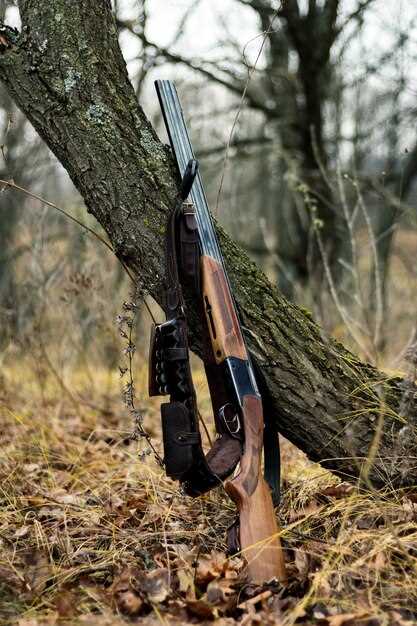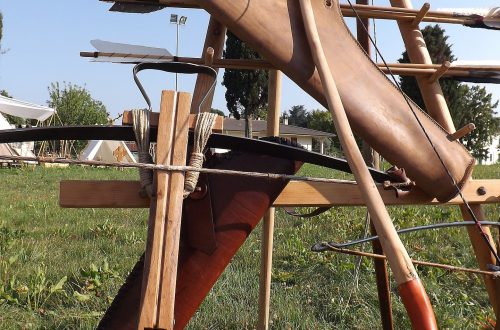
Best crossbow bolts and broadheads for hunting

When it comes to hunting with a crossbow, selecting the right bolts and broadheads is crucial for achieving success in the field. The combination of high-quality bolts and effective broadheads can significantly enhance your accuracy and penetration power, ensuring that you make clean, ethical shots.
The market today offers a myriad of options for both crossbow bolts and broadheads, each designed to meet the diverse needs of hunters. Understanding the differences between materials, weights, and designs can help you choose the most suitable equipment for your hunting style and the game you are pursuing. From lightweight carbon bolts to heavy-duty aluminum options, the decision can greatly impact your performance.
As you delve into this guide, you’ll discover some of the top-rated crossbow bolts and broadheads available today. We’ll examine factors such as durability, flight stability, and cutting diameter to help you make informed choices that will maximize your effectiveness on your next hunting adventure.
Choosing the Right Crossbow Bolts for Different Game
When it comes to achieving success in hunting, selecting the appropriate crossbow bolts is crucial. Different game requires specific types of bolts and broadheads to ensure effective performance and humane kills. Understanding the nuances of bolt construction and design can significantly impact your hunting experience.
1. Small Game: For small game hunting, such as rabbits and squirrels, lightweight bolts with a diameter of 16 to 20 inches are recommended. These bolts should be equipped with field points or smaller expandable broadheads, allowing for accurate shots without excessive damage to the meat. A 100-grain broadhead is often suitable for this purpose.
2. Medium Game: When hunting deer or similar-sized animals, a sturdier bolt is necessary. Bolts measuring 20 to 22 inches with a weight between 400 to 450 grains provide a good balance of speed and penetration. Use fixed-blade broadheads or 2- to 3-blade mechanical broadheads that ensure deep penetration while retaining energy. The choice of a 100 to 125-grain broadhead can enhance accuracy and lethality.
3. Large Game: For larger animals such as elk or bear, opt for heavy-duty bolts, ideally 22 inches long and weighing 450 grains or more. Full metal jacket (FMJ) or carbon-fiber bolts provide superior durability. Pair these bolts with heavy fixed-blade broadheads, weighing between 125 to 150 grains, which offer excellent penetration and can withstand the toughness of larger game.
4. Feral Hogs and Predators: When targeting feral hogs or predators, use bolts that are between 22 to 24 inches long, as they require extra weight for reliability. Broadheads should be robust, potentially expandable types that provide effective cutting diameters. A 125-grain broadhead works well by delivering sufficient power for larger, tough-skinned animals.
Choosing the right combination of crossbow bolts and broadheads tailored to the specific game enhances not only effectiveness but also safety, ensuring that each hunt is both successful and ethical.
Comparative Analysis of Broadhead Types for Optimal Performance

Broadheads are essential components of crossbow hunting, directly influencing accuracy, penetration, and game recovery. Various types of broadheads are available, each designed for specific hunting conditions and preferences. Analyzing these types can help hunters determine the most effective options for their needs.
Fixed blade broadheads are renowned for their simplicity and reliability. They feature a stationary cutting edge, ensuring consistent flight patterns and penetration power. These broadheads maintain structural integrity even upon impact, making them ideal for larger game. However, their potential drawback lies in the aerodynamic performance; they may experience less accuracy at extended distances compared to other types.
Mechanical broadheads, on the other hand, employ a deployable cutting mechanism. Upon impact, the blades expand to create a larger wound channel, increasing the likelihood of a clean kill. Their aerodynamic design often allows for better flight characteristics, enhancing accuracy over long distances. However, reliability can be a concern, as mechanical broadheads may fail to open in some conditions, leading to less effective penetration.
Hybrid broadheads combine features of both fixed and mechanical types, offering a balance between simplicity and enhanced cutting capabilities. They typically include fixed blades for flight stability and mechanical components for increased wound channels. This versatility caters to a variety of hunting scenarios, though they may carry the complexity and potential reliability issues associated with mechanical options.
Weight and cutting diameter are critical factors in broadhead performance. Heavier broadheads yield higher momentum, enhancing penetration, while larger diameters create wider wound channels, facilitating quick game recovery. The choice between broadheads often comes down to the species being hunted, hunting conditions, and personal preference, underlining the importance of testing different types for optimal results.
In conclusion, understanding the characteristics of various broadhead types–fixed, mechanical, and hybrid–allows hunters to make informed decisions that can significantly impact their success in the field. Each type offers distinct advantages and potential drawbacks, making personal testing and experience vital for selecting the best broadhead for specific hunting scenarios.
Maintenance Tips for Crossbow Bolts and Broadheads

Proper maintenance of your crossbow bolts and broadheads is crucial for ensuring optimal performance and extending their lifespan. Here are some essential tips to help you keep your gear in top condition.
1. Regular Inspection: Frequently inspect your crossbow bolts for signs of damage, such as cracks, splinters, or nicks. Pay special attention to the fletchings and nocks, as these components can affect accuracy. Broadheads should also be checked for dull blades or bent tips, which can hinder penetration and effectiveness.
2. Cleaning: After each use, it’s important to clean your bolts and broadheads. Wipe down the shafts with a soft, damp cloth to remove dirt and debris. For broadheads, consider using a specialized blade cleaner to prevent rust and to maintain sharpness. Avoid using harsh chemicals that could damage the materials.
3. Sharpening Broadheads: Keeping your broadheads sharp is essential for a successful hunt. Use a quality broadhead sharpener or stone, and follow the manufacturer’s recommendations for sharpening angle. Regularly check the sharpness before each hunting trip to ensure you’re ready for the field.
4. Storage: Store your crossbow bolts and broadheads in a cool, dry place to prevent moisture-related damage. Use a dedicated quiver or storage box that protects the points and fletching. This will help maintain their integrity and performance during storage.
5. Replacement of Damaged Parts: If you notice any damage to your bolts or broadheads, replace them promptly. It’s essential to avoid using compromised equipment, as this can lead to poor accuracy and even dangerous situations during a hunt.
6. Fletching Maintenance: Ensure that the fletchings are securely attached to the bolts. Check for any loose or damaged fletchings and replace them if necessary. Well-maintained fletchings play a critical role in stabilizing your arrows in flight.
By following these maintenance tips, you can maximize the performance of your crossbow bolts and broadheads, ensuring greater success on your hunting trips.




